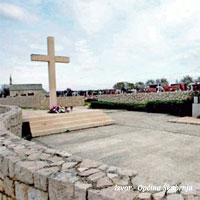On the occasion of the judgement of the Higher Court in Belgrade in the case against Ranka Tomić


On November 26, 2018, the War Crimes Chamber of the Belgrade Higher Court issued a judgment finding Ranka Tomić, the leader of the “Petrovac Women’s Front” unit which was under the command of the Petrovac Brigade of the Republika Srpska Army (VRS), together with other members of the unit she was captain of, guilty of the torture and inhumane treatment of the war prisoner Karmena Kamenčić in mid-July 1992 in the village of Radić (Bosanska Krupa), and sentenced her to five years in prison. The Humanitarian Law Center (HLC) considers that the court rendered the right decision by convicting Ranka Tomić, but found that the sentence imposed was too mild, bearing in mind the manner in which Karmena Kamenčić was tortured and later killed.









 On Sunday, November 18, 2018, we mark exactly 27 years since the commission of the crimes by members of the Yugoslav People’s Army (JNA) and Territorial Defence (TO) of Benkovac against Croatian civilians in the villages of Škabrnja and Nadin. Although the Humanitarian Law Center (HLC) filed criminal charges for these crimes with the Office of the War Crimes Prosecutor (OWCP) in November 2017, to date the HLC has no information as to whether the OWCP has taken any legal action that would lead to the trial of those responsible for this crime.
On Sunday, November 18, 2018, we mark exactly 27 years since the commission of the crimes by members of the Yugoslav People’s Army (JNA) and Territorial Defence (TO) of Benkovac against Croatian civilians in the villages of Škabrnja and Nadin. Although the Humanitarian Law Center (HLC) filed criminal charges for these crimes with the Office of the War Crimes Prosecutor (OWCP) in November 2017, to date the HLC has no information as to whether the OWCP has taken any legal action that would lead to the trial of those responsible for this crime.

